Filter by
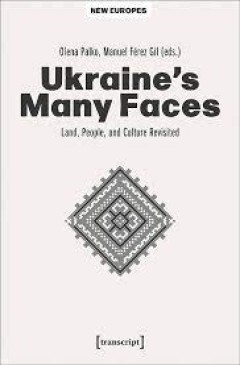
Ukraine's Many Faces Land, People, and Culture Revisited
Russia's large-scale invasion on the 24th of February 2022 once again made Ukraine the focus of world media. Behind those headlines remain the complex developments in Ukraine's history, national identity, culture and society. Addressing readers from diverse backgrounds, this volume approaches the history of Ukraine and its people through primary sources, from the early modern period to the pres…
- Edition
- -
- ISBN/ISSN
- 9783839466643
- Collation
- -
- Series Title
- -
- Call Number
- -
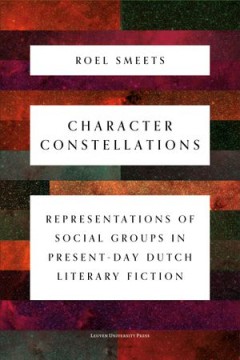
Character Constellations : Representations of Social Groups in Present-Day Du…
Fiction has a major social impact, not least because it co-shapes the image that society has of various social groups. Drawing on a collection of 170 contemporary Dutch-language novels, Character Constellations presents a range of data-driven, statistical models to study depictions of characters in terms of gender, race, ethnicity, class, age, sexuality, and other identity categories. Incorpora…
- Edition
- -
- ISBN/ISSN
- 9789461664129
- Collation
- 252 halaman
- Series Title
- -
- Call Number
- 800 SME c
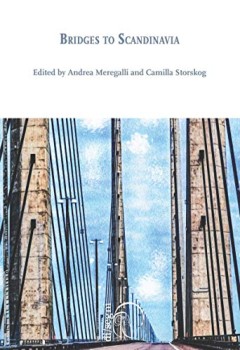
Bridges to Scandinavia
This volume is the final output of a project started in 2013 on the occasion of the fortieth anniversary of the Scandinavian Section of the University of Milan. A group of scholars working on different European and non-European cultural and literary traditions come together here to discuss the relationships between their areas of study and the Nordic countries. The range of the contributions ex…
- Edition
- -
- ISBN/ISSN
- 9788867054121
- Collation
- 283
- Series Title
- -
- Call Number
- 800 BRI
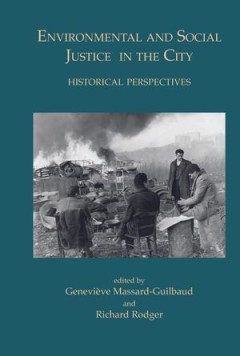
Environmental and Social Justice in the City: Historical Perspectives
The world is full of environmental injustices and inequalities, yet few European historians have tackled these subjects head on; nor have they explored their relationships with social inequalities. In this innovative collection of historical essays the contributors consider a range of past environmental injustices, spanning seven northern and western European countries and with several chapters…
- Edition
- -
- ISBN/ISSN
- 9781874267614
- Collation
- -
- Series Title
- -
- Call Number
- 808.4 ENV e
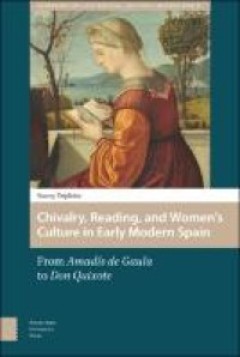
Chivalry, Reading, and Women’s Culture in Early Modern Spain: From Amadís …
The Iberian chivalric romance has long been thought of as an archaic, masculine genre and its popularity as an aberration in European literary history. Chivalry, Reading, and Women’s Culture in Early Modern Spain contests this view, arguing that the surprisingly egalitarian gender politics of Spain’s most famous romance of chivalry has guaranteed it a long afterlife. Amadís de Gaula had a …
- Edition
- -
- ISBN/ISSN
- 9789462985490
- Collation
- -
- Series Title
- -
- Call Number
- 800 TRI c
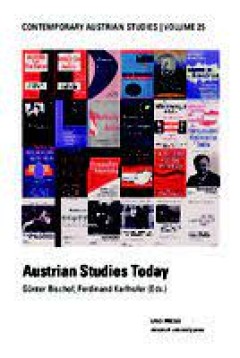
Austrian Studies Today
"This volume celebrates the study of Austria in the twentieth century by historians, political scientists and social scientists produced in the previous twenty-four volumes of Contemporary Austrian Studies. One contributor from each of the previous volumes has been asked to update the state of scholarship in the field addressed in the respective volume. The title “Austrian Studies Today,” t…
- Edition
- -
- ISBN/ISSN
- 9783903122178
- Collation
- -
- Series Title
- -
- Call Number
- -
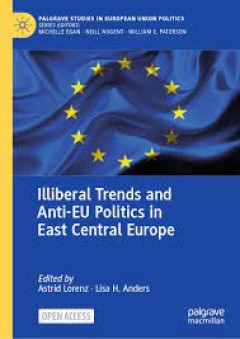
Illiberal Trends and Anti-EU Politics in East Central Europe
This open access book provides an in-depth look into the background of rule of law problems and the open defiance of EU law in East Central European countries. Current illiberal trends and anti-EU politics have the potential to undermine mutual trust between member states and fundamentally change the EU. It is therefore crucial to understand their domestic causes, context conditions, specific p…
- Edition
- -
- ISBN/ISSN
- -
- Collation
- -
- Series Title
- -
- Call Number
- -

Global Austria
"After the dissolution of the Austro-Hungarian Monarchy, Austria transformed itself from an empire to a small Central European country. Formerly an important player in international affairs, the new republic was quickly sidelined by the European concert of powers. The enormous losses of territory and population in Austria’s post-Habsburg state of existence, however, did not result in a politi…
- Edition
- -
- ISBN/ISSN
- 9781608010622
- Collation
- -
- Series Title
- -
- Call Number
- -
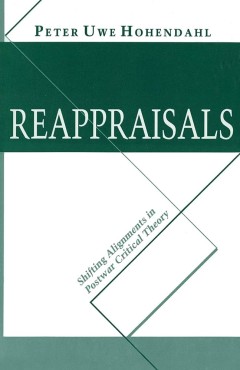
Reappraisals : Shifting Alignments in Postwar Critical Theory
Reappraisals is a provocative account of the development of modern critical theory in Germany and the United States. Focusing on the period since World War II, Peter Uwe Hohendahl explores key debates on the function of critical theory, illuminating the diverse positions and alliances among the participants. Bringing together six essays, as well as new introductory and concluding chapters, Hohe…
- Edition
- -
- ISBN/ISSN
- 9780801497063
- Collation
- -
- Series Title
- -
- Call Number
- 100 HOH r
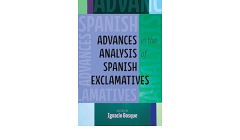
Advances in the Analysis of Spanish Exclamatives
Advances in the Analysis of Spanish Exclamatives is the first book entirely devoted to Spanish exclamatives, a special sentence type often overlooked by contemporary linguists and neglected in standard grammatical descriptions. The seven essays in this volume, each by a leading specialist on the topic, scrutinize the syntax, as well as the semantic and pragmatic aspects, of exclamations on theo…
- Edition
- -
- ISBN/ISSN
- -
- Collation
- -
- Series Title
- -
- Call Number
- 400 ADV
 Computer Science, Information & General Works
Computer Science, Information & General Works  Philosophy & Psychology
Philosophy & Psychology  Religion
Religion  Social Sciences
Social Sciences  Language
Language  Pure Science
Pure Science  Applied Sciences
Applied Sciences  Art & Recreation
Art & Recreation  Literature
Literature  History & Geography
History & Geography